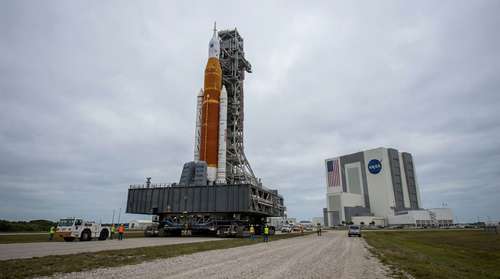The tech world has been buzzing about artificial intelligence for a while now, but nothing compares to the frenetic pace at which the AI industry is evolving these days. The landscape is shifting rapidly with massive investments pouring in, and every conversation seems to revolve around the next big breakthrough. However, as we marvel at these exciting advancements, it's important to pause and ask ourselves: is this exponential growth really sustainable, or are we on the brink of a bubble similar to past tech booms?
Many of us have experienced the thrill of riding a wave, but history tells us that every high tide eventually recedes. Today, investors and industry experts are debating whether the boom in AI is a sign of a robust future or a fleeting market spectacle. With so many innovations and new ventures cropping up overnight, the optimism is palpable—but so are the risks.
The Unstoppable Momentum in the AI Industry
At its core, the AI industry is about innovation and transformation. Its growth is fueled by relentless research, revolutionary products, and widening adoption across multiple sectors. There’s a palpable sense of excitement in the air, as companies like Google, Microsoft, and IBM push the boundaries of what artificial intelligence can achieve.
Innovation is happening at breakneck speed. Every week, there's news of a new AI breakthrough, from self-learning algorithms to advanced robotics. These developments don't just capture headlines; they reshape industries. For instance, AI advancements in healthcare are revolutionizing diagnostics and treatment, potentially saving countless lives. When you look at the investment figures, it's clear that the market growth is supported by substantial financial commitments that hint at long-term confidence.
Investors are eager to bet on AI's future prospects. They see it as the engine that powers modern technology trends and believe that the economic impact will be as transformative as the internet boom in the late 1990s. The rise in venture capital funding and public market debuts reinforces the belief in the unstoppable momentum of the AI industry. There's no denying that we're living through a period of rapid expansion.
Market Growth and Investor Sentiment
The rapid growth in the AI industry is not without its attributions to a bullish investor sentiment. Many foster the view that the current boom is more than just hype, while others fear that exuberance might be overinflated in a way reminiscent of tech bubbles in the past.
Investors are drawn to the enormous potential because of both the technological capabilities and the economic returns promised by artificial intelligence. Picture a scenario where every breakthrough sparks a flurry of new startups, each trying to capitalize on the next big idea. This dynamic, combined with aggressive investment, is creating a vibrant but potentially volatile environment.
Some industry analysts, however, warn that the sky-high valuations could be a sign of a potential bubble. They remind us that unchecked speculative investments have historically led to market corrections. The conversation around financial risks is especially heated among veteran investors, who draw parallels between the current speculative frenzy and previous tech bubble episodes.
This mix of euphoria and caution is reminiscent of the dot-com era when excitement about the internet promised limitless riches, only for reality to eventually temper those expectations. Every investor has to wonder: are we witnessing a true revolution in technology, or is it just another bubble waiting to burst?
Technological Advancements and Their Economic Impact
With each passing day, AI advancements continue to push the boundaries of what technology can do. These cutting-edge technologies, ranging from deep learning systems to sophisticated neural networks, are not only driving efficiency in traditional sectors but also creating entirely new industries.
The economic impact of this industry expansion has been nothing short of dramatic. Whether it’s in automating mundane tasks or revolutionizing customer service, AI is reshaping the labor market at a considerable pace. It’s like a double-edged sword—while it opens doors to innovation and market growth, it also raises questions about workforce displacement and the broader economic implications.
Many businesses are now heavily investing in artificial intelligence as a tool to gain competitive advantages. This strategy is paid off in sectors such as retail, where personalized experiences and data-driven decision-making are becoming the norm. These examples give us a glimpse into the transformative power of AI. However, with rapid growth come financial risks, and the balance between innovative investment and overvaluation remains a subject of hot debate.
The promise of AI pushes the envelope of what’s possible. It’s creating a ripple effect that challenges traditional business models while encouraging new ways of generating revenue. Yet, the question remains whether this momentum can be maintained without veering into an unsustainable bubble.
Concerns Over a Potential Bubble
Murmurs about a potential bubble in the AI industry are becoming louder as some critical voices caution that we might be riding dangerously high on expectations. These concerns center around three main issues: overvaluation, speculative investment, and unrealistic market forecasts.
Investor psychology plays a significant role here. There's always a fine line between optimism and overhype. Before the financial world, this pattern has been observed multiple times. The current scenario with AI mirrors past tech bubbles where initial success led to sky-high expectations that eventually needed grounding. It’s a reminder that not every spectacular innovation guarantees a smooth ride on the market train.
Critics are quick to bring up examples from history, pointing out that every explosive boom eventually faces a pullback. They caution that a market driven by speculative investments is ripe for periodic corrections. Even as companies push the limits of AI advancements, there is an unspoken worry among analysts: at what point does rapid scaling of investment put the industry at risk of a downturn?
These concerns don't immediately negate the revolutionary potential of AI but serve as a reminder to remain vigilant. They encourage investors and stakeholders to strike a careful balance between embracing innovation and assessing financial risks. As always, understanding the economic impact of rapid technological change requires both optimism and a dose of healthy skepticism.
Future Prospects: Balancing Innovation and Caution
Looking ahead, the future of the AI industry appears to be a balancing act between fervent innovation and mindful caution. The boom in artificial intelligence has brought unprecedented market growth, but it also demands a disciplined approach to investment and development. In a sense, it’s like walking a tightrope where one misstep could lead to a sudden fall.
Many industry leaders advocate for sustained research and careful market analysis. They argue that the current phase of industry expansion should be built on a solid foundation of realistic expectations and rigorous testing. Maintaining transparency in financial dealings and setting achievable benchmarks are seen as critical steps to ensure that the boom is not just a flash in the pan.
On a personal note, these developments remind me of when I first witnessed the tech surge in the early 2000s. The excitement was palpable, but so was the anxiety over potential crashes. Today, as we see similar patterns around AI, the narrative is slightly different because the technological groundwork is much stronger, yet the cautionary tales of the past are hard to ignore.
Ultimately, the most successful companies will be those that can harness the power of AI while preparing for the financial ebbs and flows inherent in any high-growth sector. It's about sustaining long-term innovation without succumbing to the pitfalls of unchecked market speculation.
This conversation isn’t just for the tech insiders; it’s relevant for anyone with a stake in the future of our economy. As we continue to invest in and innovate with artificial intelligence, the key is to remain informed, stay analytical, and, above all, retain a healthy respect for the economic forces at play.
In conclusion, the AI industry stands at a fascinating juncture. It’s a space marked by rapid growth and impressive technological milestones, yet shadowed by the cautionary specter of a potential bubble. The interplay of investment, innovation, and market speculation makes it one of the most compelling sectors today. Whether you’re an investor, a tech enthusiast, or simply curious about how the future is being shaped, keeping a keen eye on these trends is more important than ever!




